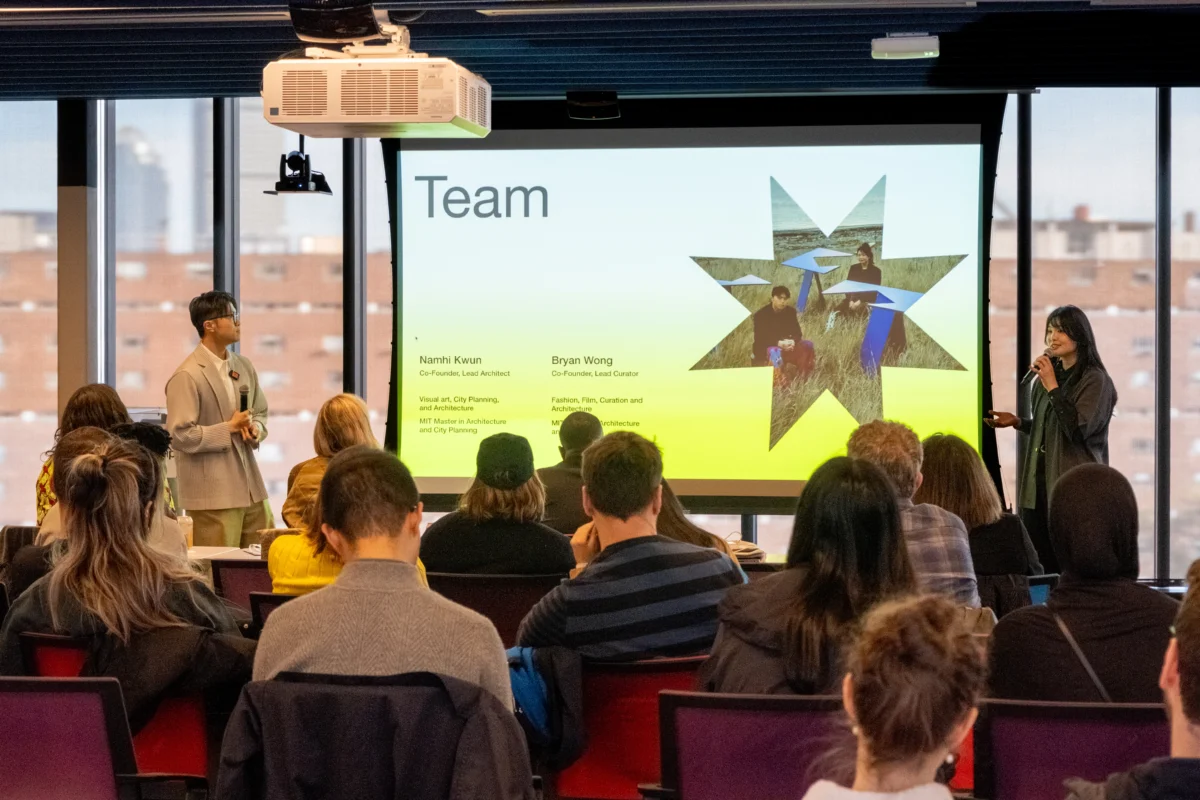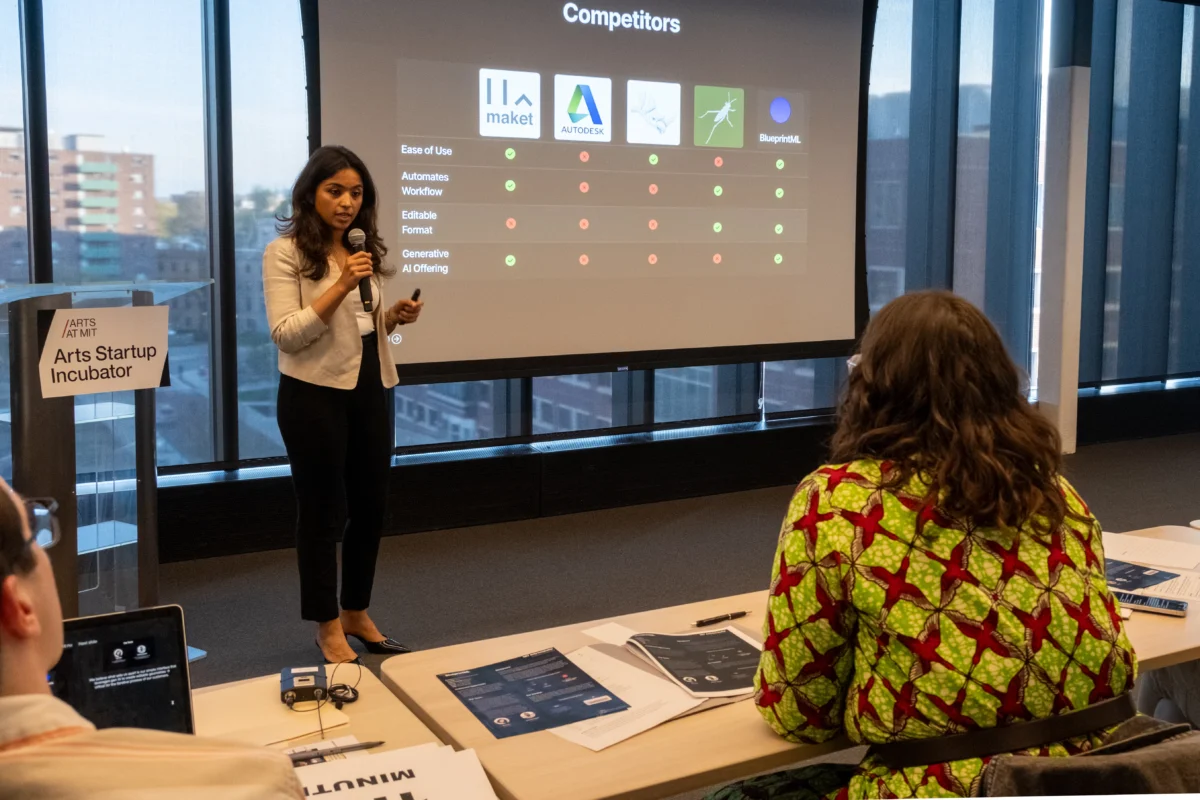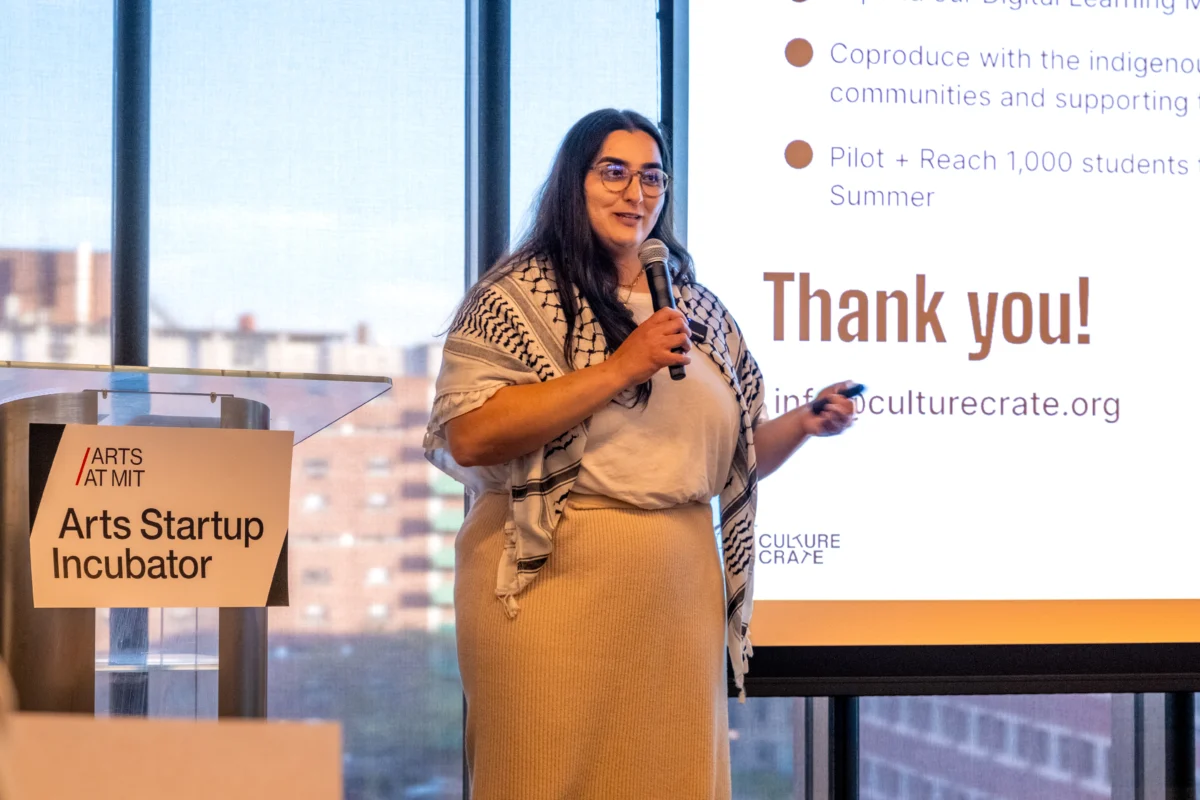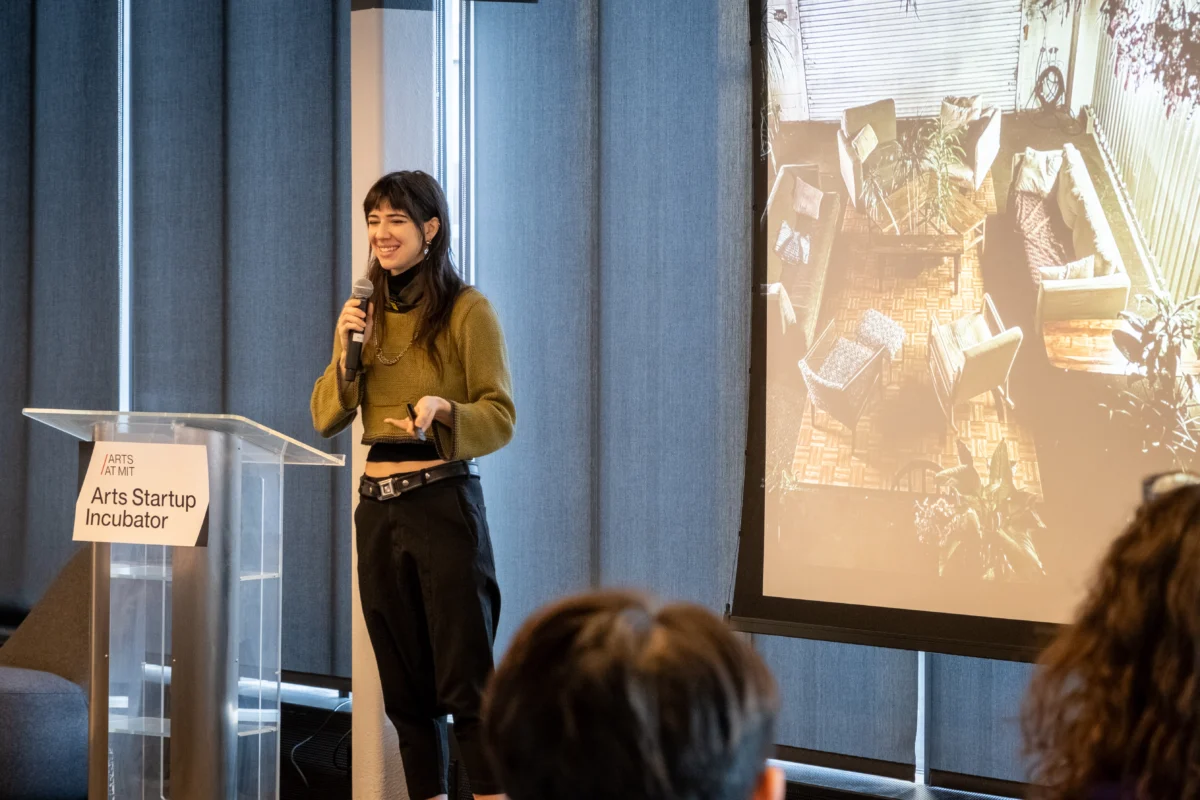The MIT Arts Startup Incubator
According to a Unesco survey, there are 671 cultural artforms in danger of disappearing during our lifetimes. Nadine Zaza MS and ME ‘24 wants to change that. “The loss of these artforms means the loss of identity, knowledge systems, and economic power in these cultures,” says Zaza, whose team “Culture Crate” won the $15,000 first prize at this year’s MIT Arts Startup Incubator finals on Wednesday, 1 May. Culture Crate is a hybrid tactile and digital learning platform that brings many of these endangered artforms into the classroom. “Teaching with culturally responsive artforms can boost student engagement, increase empathy, and help transform cultural loss into cultural value.”
Culture Crate designs and markets kits containing art and craft materials linked to a specific region and artform. The kits are supported with online lesson plans and resources. One current kit includes materials for artisanal soap making in the Arab world. Other kits, soon to be released, feature a board game played in ancient Mesopotamia, and materials for tatreez, a traditional Palestinian form of embroidery. “We intend to expand across a wide range of artforms and cultures,” says Zaza. “But right now we are particularly interested in underrepresented and misunderstood cultures and people.”
“Nadine and her team are incredibly passionate about their concept, and about making it a viable business,” says Rebecca Hui, MCP ‘18 who mentored the CultureCrate team. Hui won the $15,000 prize in the 2017 edition of the Incubator with Roots Studio, today a Brooklyn-based company that licenses rights to indigenous art and designs to the global market. “With the work they put in, I knew they would go forward with their initiative whether they won first prize or not.”
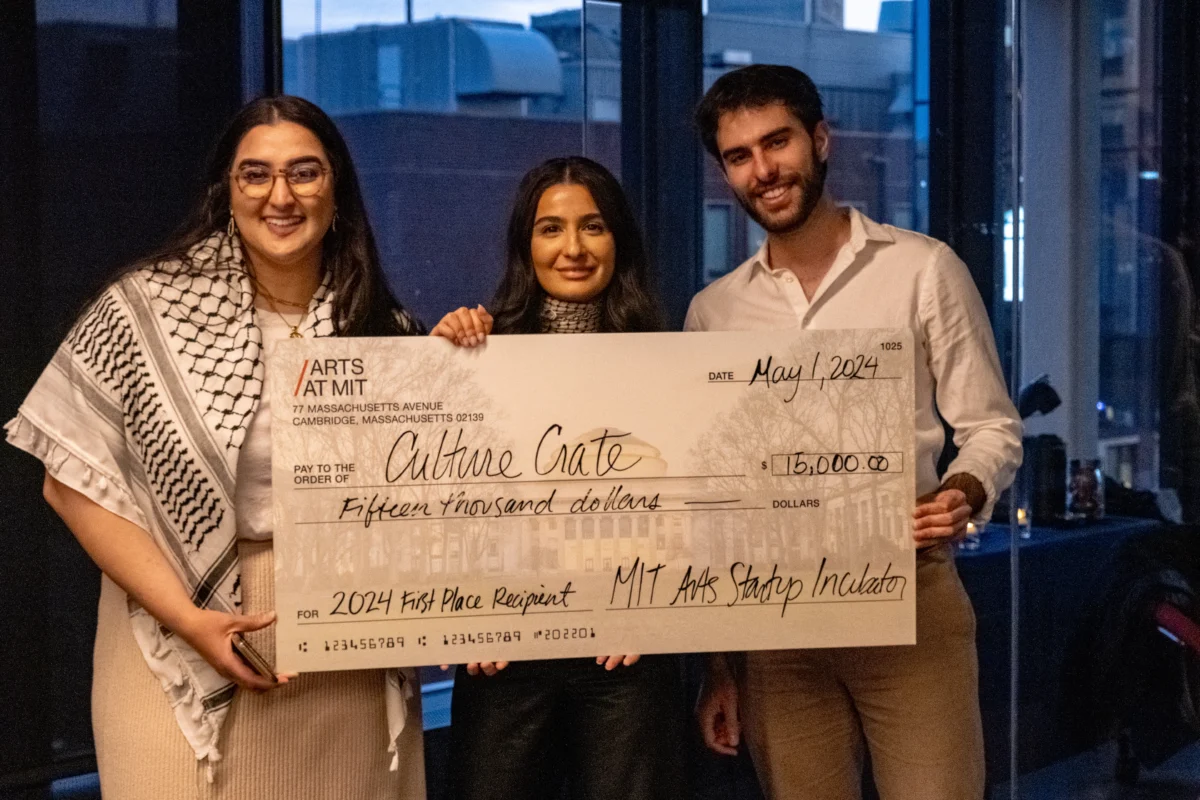
An Incubator By Any Other Name
Rebranded this year, the MIT Arts Startup Incubator (formerly the MIT $15K Creative Arts Competition) has hosted more than 210 student teams since it was established in 2013. Student groups have pitched endeavors ranging from a custom costume design marketplace for parties and cosplay to an online platform where musicians can monetize their superfans. The MIT Startup Arts Incubator is a rich support and development program that spans much of the academic year, offering workshops, mentorship, and pitch coaching. Thirty nine teams applied to the program last fall, with 10 groups gaining admission. On May 1, 2024 the five finalists presented their business plans to a three-person jury. The finalists received $2,500 awards, along with detailed comments and feedback from the jury.
“The students’ progress during the program is incredibly impressive,” says Philana Brown, the program’s producer. “Teams start with an idea or venture in the early stages of development and, a few months later, the finalists present compelling pitches that articulate the purpose behind the project, why it’s important, and how it’s going to work,” says Brown “It’s clear they’ve worked hard to incorporate feedback from peers and industry experts to accelerate their creative businesses.”
“I was impressed with the professionalism of all five ideas and presentations,” observed jury member Chris Hope, an educator and innovator and founder of Loop Lab. “And the skills these teams developed during the process, skills like how to define and articulate an idea, and how to motivate people, can be transferred to almost any other field.”
“People tend to think of the arts as something peripheral,” said jury member Jessica Fjeld, a poet, lawyer, and non-profit administrator. “Programs like this one remind us that the arts are part of the core of human experience.”
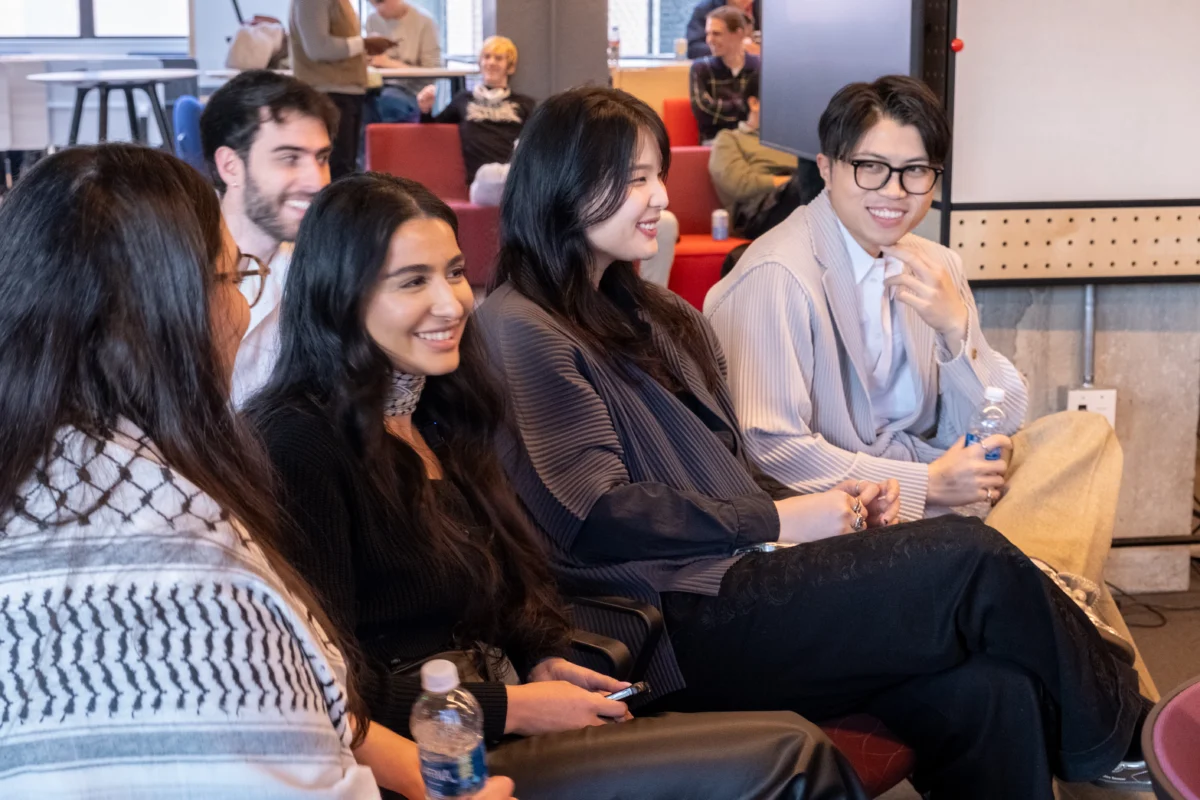
The Additional Teams
Hex House: There is a sort of black hole that entraps emerging artists—especially young artists navigating the tricky transition between school and self-sufficiency. Hex House is a potential remedy. Situated in Brooklyn, and co-founded two years ago by Char Stiles, MAS ‘25, Hex House provides affordable studio spaces, performance spaces, and creates a vibrant artist community that enlivens its Brooklyn neighborhood. Organized as a cooperative, Hex House in Brooklyn generated $100,000 in revenue last year from rental and lease income. Stiles and her team would like to scale the Hex House initiative, beginning with a second space in Boston.
SceneSpark: Faced with the twin-terrors of shrinking studio budgets and soaring production costs, it is increasingly difficult for screenwriters and directors to have their scripts and treatments made into films. “We want to help creatives better advocate for their film projects,” says Jake Daniels, MBA ’25, founder and lead engineer at SceneSpark, a generative AI platform that empowers screenwriters to enhance their scripts with visuals and data that can help studio executives envision the look, feel, and costs associated with the film.
HONMI: Cities like Boston are blessed with a bounty of talent—including an abundance of young designers who struggle to find spaces and venues to express their talent. At the same time, many of Boston’s retail storefronts remain vacant—and in some cases boarded up. Namhi Kwun SMArchS ’25 and Bryan Wong SMArchS ‘24 of the artistic duo HONMI see a singular opportunity here. Their initiative will create pop-up spaces in vacant retail storefronts where young designers can build displays and exhibits. Web based, the HONMI initiative is built on the AirBNB model; store owners list their spaces and availability online, and designers can build a profile that building owners can preview.
BlueprintML: “Surveys show that up to 70% of design time is spent doing 3D modeling,” says Riya Patel, MBA ’25, co-founder of BlueprintML. “We think an architect’s time is better spent on crafting innovative design experiences.” BlueprintML’s MVP is a generative AI platform that automates 3D modeling and other time-consuming tasks, freeing designers to focus on more creative and innovative solutions. The AI platform will be marketed on the B2B model, with tiered pricing for students, sole practitioners, and enterprise clients.
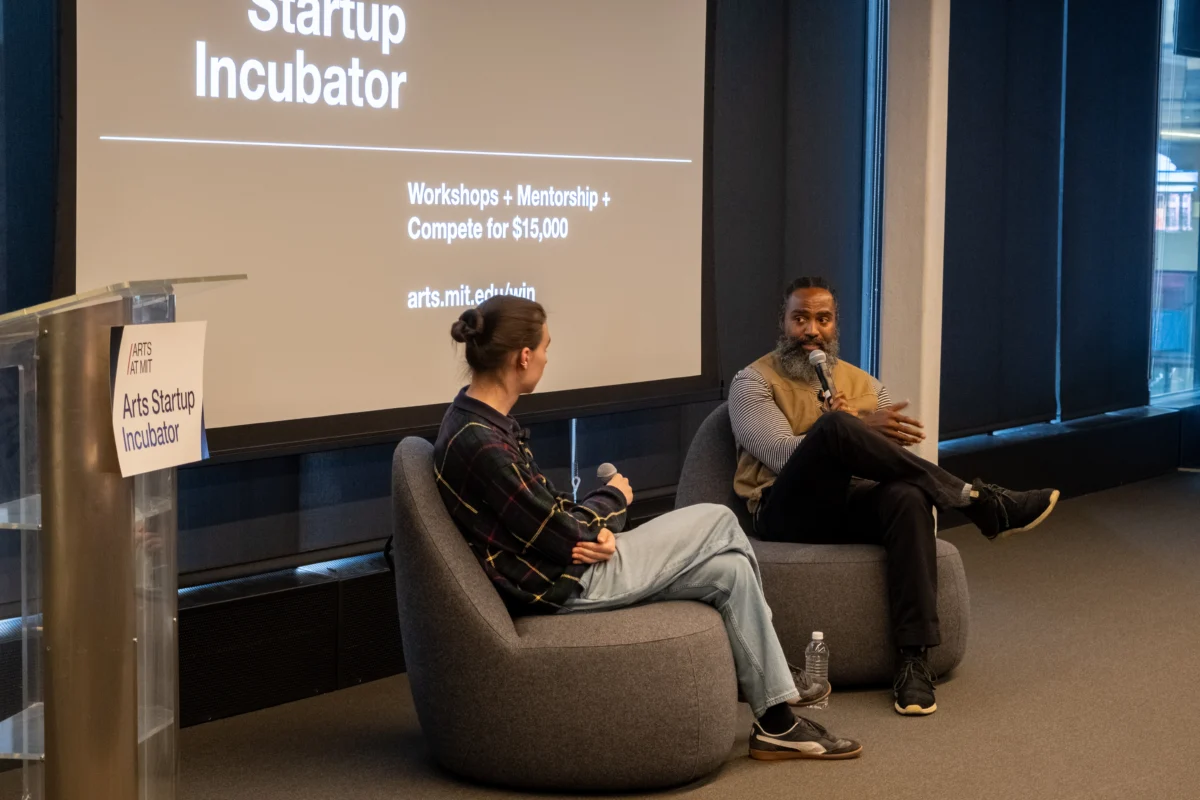
The Power of Community
This year’s Arts Startup Incubator final featured special guest DAOuda Leonard, who spoke with the Media Lab AI researcher Lancelot Blanchard while the three-member jury deliberated after the five finalist presentations. “We need to apply our knowledge and experience to help artists express themselves,” says Leonard, the founder and CEO of CreateSafe Inc, a music technology company that provides Saas and Premium Services for music artists, managers, and record labels. Leonard is a veteran entertainment professional who has worked as manager, publisher, producer, and creative director for some of the biggest names in the industry. “The struggle of artists is real. They are all looking for that missing ingredient to add to their secret sauce. What technologies and tools will we invent to help them?”
Written by Ken Shulman
Editorial direction by Leah Talatinian


